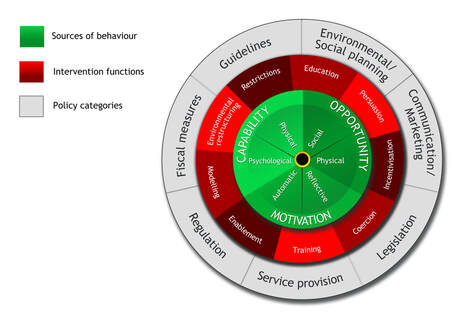Business case
“Disinformation in a time of national crisis can be deadly.” (European Commission)
"Policy-makers often rely heavily on common sense when making decisions instead of making use of available evidence from social and behavioral sciences. This has led to repeated policy failures and considerable unnecessary waste in resources and opportunities." (Academy of Social Sciences, 2017)
"Policy-makers often rely heavily on common sense when making decisions instead of making use of available evidence from social and behavioral sciences. This has led to repeated policy failures and considerable unnecessary waste in resources and opportunities." (Academy of Social Sciences, 2017)
The Problem
- Distrust in science, pushback against scientific evidence threatens public health around the world. Ignorance can be fatal. Bogus remedies, myths and fake news about COVID-19 can cost lives (Nature).
- There is a gap between public opinion and the scientific consensus.
- Fake news can damage the public trust in government. The largest category of false or misleading posts is content that deliberately challenges policies and actions of public officials, governments, and international institutions (UN).
- School children lack training in critical thinking skills.
- The average performance of 15-year-old Greek students in science literacy, mathematics and reading performance has repeatedly been one of the lowest among OECD countries.
Suggested solutions

Short term
Medium term
Long term
- Provide cheat sheets on how to distinguish credible from fake sources. Advise in the development of policies, procedures, and solutions that reduce the amount of fake news and promote the communication and understanding of science (observe Good Practices around the world). Promote collective action. Cooperate with community (e.g., Information Volunteers), facilitators such as Facebook, Fact checking sites (e.g., Snopes, Hellenic Hoaxes, Science Hoaxes), Skeptics etc.
Medium term
- Develop effective behaviour change interventions using a structured framework. e.g., the Behaviour Change Whee, The Mindspace framework or The EAST (make it Easy, Attractive, Social and Timely) framework.
- Employ an array of interventions at policy, environment and individual level. Use Behaviour Change Techniques (e.g., social norms, nudging, social media, sign posts/cues/reminders, stories, examples, flow charts, science ambassadors, etc.) to develop persuasion and compliance campaigns. Provide expert behavioural science advice aimed at anticipating and helping people adhere to interventions (SPIB).
Long term
- Foster students' (and teachers') critical thinking skills (develop online MOOC, incorporate critical thinking in school curriculum).
Benefits
- Trusted and verified information will help keep everyone safe.
- Promote adherence to guidelines.
- Reduce social disruption.
- Consistency in messaging and enforcement to build credibility and support for government policies and guidance.
Links and Resources
- CDC Community Change Process and the CHANGE Tool
- https://www.ucl.ac.uk/behaviour-change/sites/behaviour-change/files/phebi_achieving_behaviour_change_local_government.pdf
- https://www.gov.uk/government/groups/independent-scientific-pandemic-influenza-group-on-behaviours-spi-b
- https://unfoundation.org/blog/post/immunizing-the-public-against-misinformation/
- https://ec.europa.eu/info/live-work-travel-eu/health/coronavirus-response/fighting-disinformation/identifying-conspiracy-theories_en#how-to-talk-to-somebody-who-firmly-believes-in-conspiracy-theories
- https://www.un.org/press/en/2020/sgsm20044.doc.htm
- https://www.who.int/docs/default-source/coronaviruse/covid-strategy-update-14april2020.pdf?sfvrsn=29da3ba0_19
- https://www.who.int/emergencies/diseases/novel-coronavirus-2019/advice-for-public/myth-busters
- Protection motivation theory
- Youtube lecture by Dr Ro
